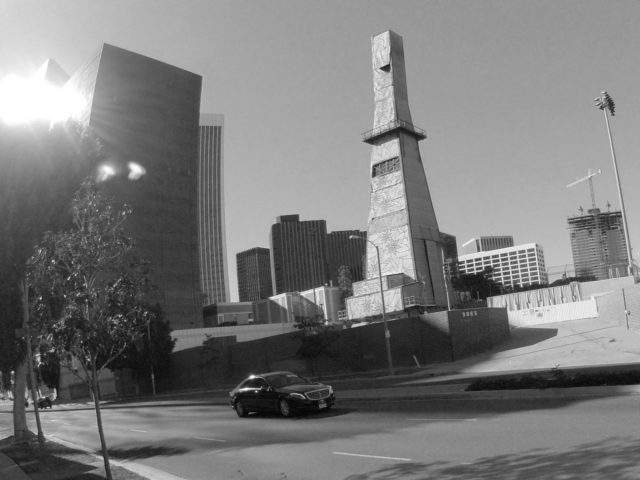Los Angeles City Council President Herb Wesson has introduced a motion to end oil drilling and production near public places in a measure that could kill America’s next oil and gas fracking boom.
Over the objections from the oil industry, Wesson introduced a motion on April 19 to conduct a study regarding how the Department of City Planning, with the assistance of the city attorney and the city’s petroleum administrator, could change the city’s zoning code to require a setback for oil and gas activities within public and residential facilities.
Wesson’s motion stated, “The closer oil and gas wells and storage facilities are to sensitive land uses, the higher the risk that the health and safety of nearby residents could be threatened.” And in a call to action, Wesson added, “Due to the ongoing health impacts experienced by residents from neighborhood drilling activity, it is imperative that we identify and implement a meaningful, long-term solution.”
Despite Wesson’s claims about health risks, the Center for Disease Control found that from 2003–2013 as the U.S. oil and gas extraction industry doubled the size of its workforce and increased drilling rigs by 71 percent, the annual occupational fatality rate in the industry decreased 36.3 percent, to 1,189 deaths over the decade. About 40 percent of fatalities were due to transportation accidents, and 26 percent was due to equipment accidents. The CDC found illnesses and fatalities from all environmental exposure were extremely low.
Wesson and his environmental lobbying allies claim they are only seeking a 2,500-foot setback, or about a half mile. But with California Division of Oil, Gas and Geothermal Resources website revealing that there are about 3,000 active wells, tens of thousands of inactive wells, and underground pipelines running throughout the city, the proposed setback would essentially ban oil and gas activity in almost 100 percent of Los Angeles.
The new city-level effort follows a failed 2014 national initiative that was led by California environmental groups including Earthjustice, California Communities Against Toxics, California Safe Schools, Center on Race, Poverty & the Environment, Comite Pro Uno, the Esperanza Community Housing Corporation, and many more.
The California sponsors attempted to have the Obama administration’s Environmental Protection Agency (EPA) issue a new regulatory order under Section 112 of the Clean Air Act that would allow all oil and gas production wells and associated equipment to be listed as an “area source” of toxic pollution, if the EPA Administrator “determines that emissions of hazardous air pollutants from such wells present more than a negligible risk of adverse effects to public health” in any combined metropolitan statistical areas with a population of at least 1 million.
Give that the definition of “negligible” according to the dictionary.com website is: “so small, trifling, or unimportant that it may safely be neglected or disregarded,” the EPA would have been able to ban all oil and gas drilling, production and refining in the 54 combined metropolitan statistical areas in America that have a total population of at least 206 million, or about two-thirds of the entire U.S. population.
The 1,750-square-mile Monterrey Shale Formation that covers the entire Los Angeles Basin is potentially the richest shale oil reserve in the United States. Since water is key to the shale hydraulic fracturing drilling process, Breitbart News predicted that a state economic boom would take off as soon as California experienced its next cyclical rainy season.
With all California reservoirs already above historic levels, record snowpack levels in the Sierras, and the National Oceanic and Atmospheric Administration predicting a National a very wet El Niño during the 2017-18 water year that begins on November 1, the L.A. City Council motion could kill a potential local economic boom.

COMMENTS
Please let us know if you're having issues with commenting.